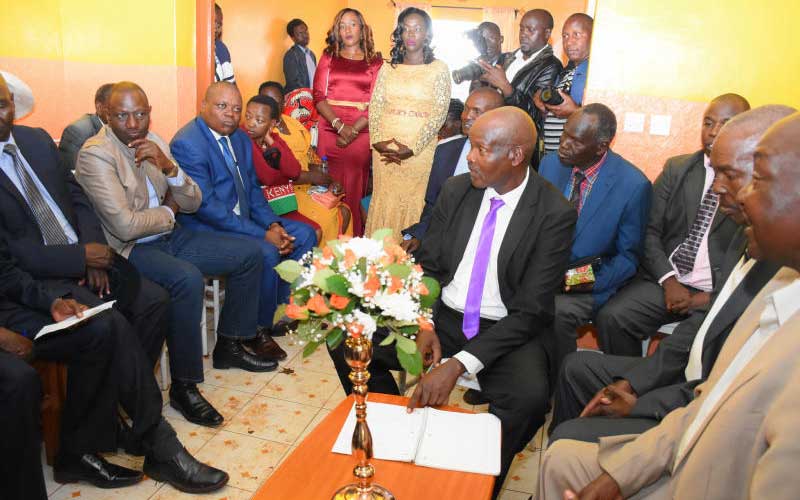×
The Standard e-Paper
Smart Minds Choose Us

Deputy President William Ruto (in grey jacket) and elders during the bride price negotiation ceremony of his younger brother David Ruto in Ziwa, Uasin Gishu County in August 2019. KRA will not tax ceremonies. [File, Standard]
A blog post published on December 3, 2019 has claimed that the Kenya Revenue Authority (KRA) is contemplating a tax on dowry payments. This has set off a buzz of reactions on the interwebs. Standard Digital decided to fact check the claim.